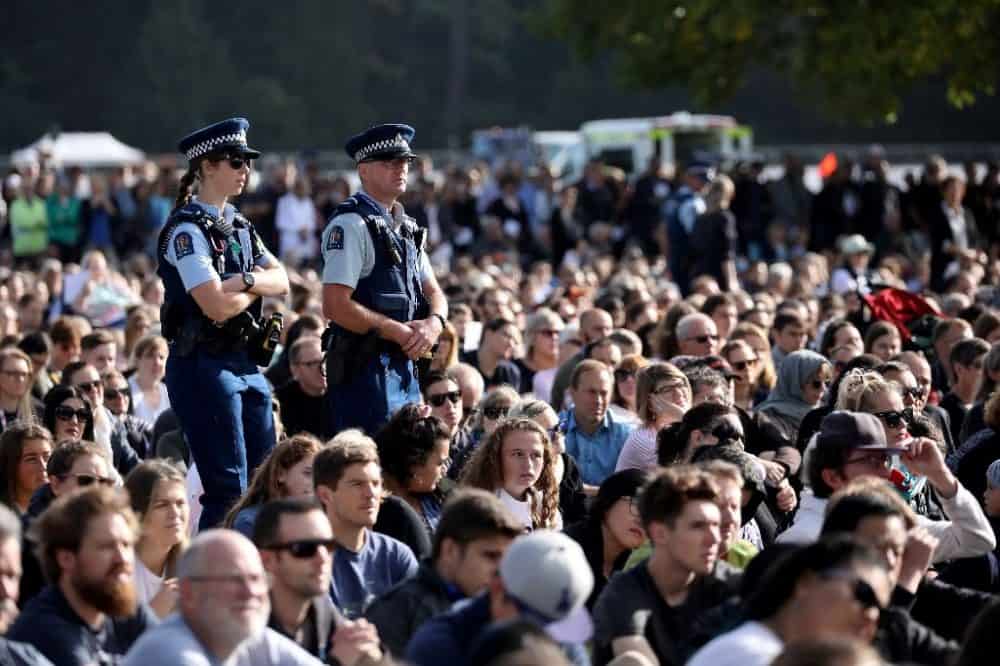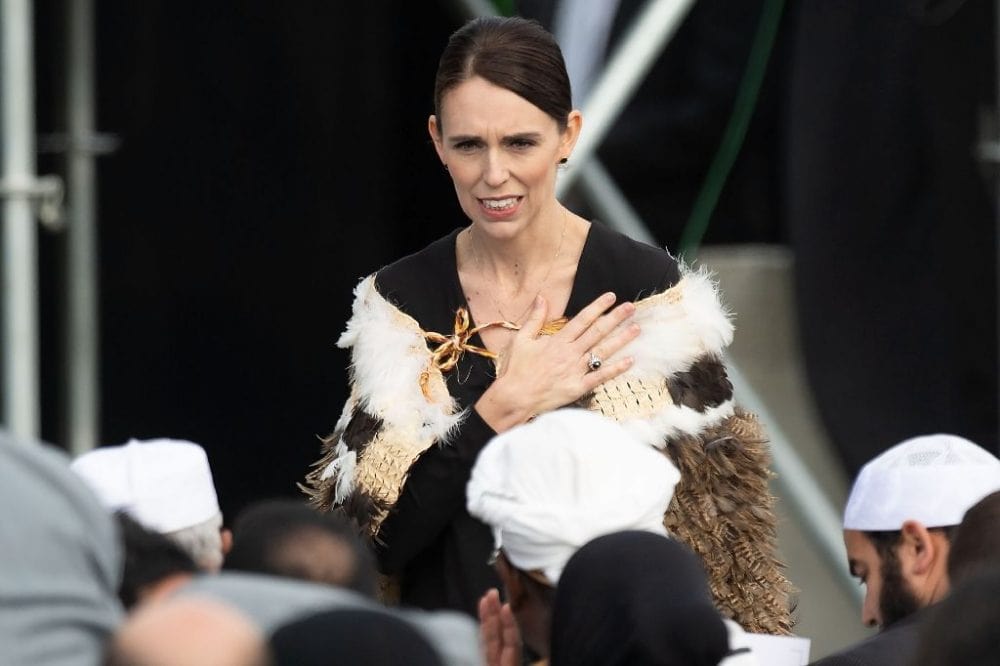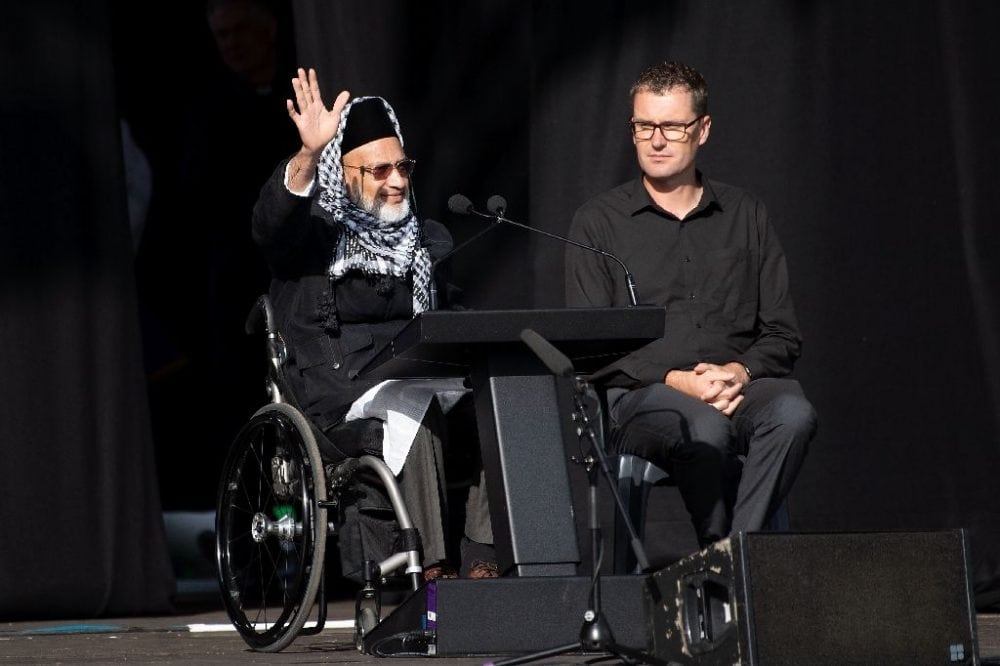CHRISTCHURCH: A Maori lament echoed across Christchurch Friday as a survivor of the New Zealand mosque attacks told a national remembrance service he had forgiven the gunman responsible for the racist massacre that took his wife, and shocked the world.
“I am choosing peace and I have forgiven,” wheelchair-bound Farid Ahmed told tens of thousands gathered in the grieving southern city, drawing sustained applause as he implored New Zealanders of all faiths to also reject hate.
Wearing a traditional Maori cloak, Prime Minister Jacinda Ardern was among those who stood silently with heads bowed while the names of 50 people killed by a self-avowed white supremacist were read out.
Speakers honoured the dead and those who survived the March 15 attacks, including 22 people who remain in hospital, among them a critically injured four-year-old girl.
Ardern, who was joined by representatives from nearly 60 nations, including her Australian counterpart Scott Morrison, received a prolonged standing ovation when she took the stage.
The 38-year-old leader, widely hailed for her response to the tragedy, praised the way New Zealanders had embraced their devastated Muslim community since the attacks.

The Christchurch remembrance service was held amid tight security (AFP Photo)
“Racism exists, but it is not welcome here,” she said, adding that she wanted New Zealand to set an example that would stop the cycle of extremism breeding extremism.
“We are not immune to the viruses of hate, of fear, of other — we never have been,” she said.
“But we can be the nation that discovers the cure.”
The hastily organised event was held amid tight security, with Police Commissioner Mike Bush confirming armed police from Australia were on site to assist their New Zealand counterparts.
The service heard a Muslim invocation, or du’a, and Cat Stevens — the British singer who shunned stardom in the 1970s and became a Muslim, taking the name Yusuf Islam — gave a powerful rendition of his hit song “Peace Train”.
But the most moving moment came with the softly-spoken words of Ahmed, whose wife Husna was killed as she rushed back into a mosque trying to rescue her disabled husband.
– ‘Light in stormy waters’ –
Looking frail in his wheelchair as he sat on stage wearing sunglasses and a headscarf, Ahmed said he bore no hatred toward the accused gunman, Australian Brenton Tarrant.
“People ask me, ‘why do you forgive someone who has killed your beloved wife?'” he said.
“I can give so many answers… Allah says if we forgive one another he loves us.”

New Zealand Prime Minister Jacinda Ardern was joined by representatives from nearly 60 nations at the service (AFP Photo)
Ahmed said people from different cultures were like flowers and “together we are a beautiful garden”.
“I don’t want a heavy heart boiling like a volcano with anger, fury and rage — it burns itself and burns its surroundings,” he said.
“I want a heart full of love, care and mercy. This heart does not want any more lives to be lost, any other human to go through the pain I’ve gone through.
“That’s why I am choosing peace and I have forgiven.”
Amid the tears and grief, there was optimism among the crowd that the outpouring of compassion that followed the attacks would become the lasting legacy of its victims.
“I’m very positive about this continuing,” said Manan Bohra, who runs a Muslim community centre in Auckland. “When we’re walking down the street people are coming up and expressing their peace and love.
“It was a very tragic event, but it’s been a life-changing event for the nation itself.”
Christchurch mayor Lianne Dalziel said the atrocity was “an attack on us all”.
“Those actions were designed to divide us and tear us apart,” she said.
“They have instead united us.”
There were other smaller services around New Zealand, including one at Auckland’s Eden Park attended by All Blacks rugby star and Muslim convert Sonny Bill Williams.
“Let’s keep leading the way,” he said. “Let’s keep being that light in stormy waters for the rest of the world to see how it’s done.”
[source_without_link]Agence France-Presse[/source_without_link]

